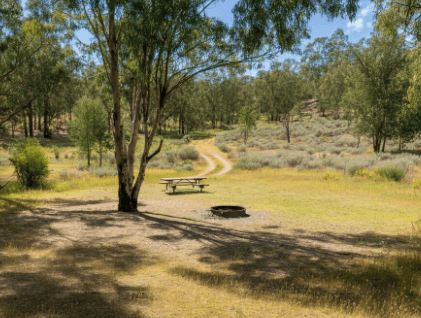Finding the perfect spot to create your dream lifestyle can be challenging, but many wonder if it’s possible to live on recreational land in Florida. Renowned for its stunning scenery and wide array of outdoor pursuits, Florida offers a unique allure for those seeking a different kind of homestead. This blog will explore the legal and practical considerations when trying to live on recreational land in Florida, helping you navigate the regulations and discover the potential for a fulfilling and adventurous living experience in the Sunshine State.
Real estate investors Steve Daria and Joleigh have extensively explored living on recreational land in Florida. They emphasize the importance of understanding zoning laws and land use restrictions to ensure compliance with local regulations. Their experiences highlight the challenges and the unique opportunities of creating a sustainable and enjoyable lifestyle on such properties.
Can You Live on Recreational Land in Florida?
Living on recreational land in Florida is subject to specific zoning laws and regulations.
Generally, such land is designated for activities like camping or fishing but may not permit permanent residential structures.
It’s essential to consult local zoning ordinances and obtain appropriate permits to ensure compliance with state and county regulations.

Benefits of Living on Recreational Land in Florida
If you want to live on recreational land in Florida, here are the benefits:
Close to Nature
Living on recreational land allows you to wake up to the sights and sounds of nature.
Imagine opening your front door to a forest or a lake — it is a dream come true for nature lovers.
Opportunities for Outdoor Activities
Recreational land offers a variety of activities, from hiking and fishing to bird-watching and camping.
You can create your own private outdoor sanctuary, perfect for family gatherings, meditation, or adventure.
Investment Potential
Recreational land in Florida is not just a lifestyle option; it is also a smart investment.
The value of such properties tends to appreciate over time, offering significant returns.
Additionally, converting recreational land into campgrounds or vacation rentals can generate extra income.
Get Started: Get Your Cash Offer Below…
We are direct land buyers. There are no commissions or fees and no obligation whatsoever. Start below by sharing where your property is and where we can send your offer…
Legal Considerations
While it’s possible to live on recreational land in Florida, there are still legal considerations:
Zoning Laws and Regulations
Before purchasing recreational land, it’s crucial to understand zoning laws.
Different areas have different regulations regarding land use, building permits, and environmental protection.
Property Rights
Ensure you have clear property rights.
Verify boundaries and check for any easements or restrictions that could affect your usage of the land.
Talking with a real estate lawyer can guide you in avoiding legal pitfalls.
Environmental Impact
Florida mandates strict environmental protections.
If your land includes wetlands, forests, or endangered species habitats, you may face additional regulations.
Familiarize yourself with state and federal laws to ensure compliance.
Essential Amenities
Here are the essential amenities needed when living on recreational land in Florida.
- Water Supply: Having a reliable water source is essential. You may need to dig a well or install a water tank. Ensure the water quality is acceptable for drinking and other household needs.
- Electricity and Internet: Living off the grid can be challenging. Consider installing solar panels and investing in a reliable generator. For internet connectivity, look into satellite or mobile hotspot options.
- Waste Management: Proper waste control is essential for keeping a clean and healthy environment. Options include septic tanks for sewage and compost systems for biodegradable waste.
Building a Sustainable Home
Explore these tips for building a sustainable home.
- Choosing the Right Structure: From tiny homes and log cabins to yurts and RVs, the options for sustainable living are vast. Choose a structure that suits your lifestyle and fits within your budget.
- Using Eco-Friendly Materials: Opt for eco-friendly construction materials like recycled steel, bamboo, and reclaimed wood. These materials are not only sustainable but also durable and aesthetically pleasing.
- Renewable Energy Solutions: Solar panels, wind turbines, and hydroelectric systems can provide clean, renewable energy. Investing in these technologies reduces your reliance on non-renewable sources and lowers utility costs.
Managing Wildlife Encounters
Florida’s recreational lands are home to diverse wildlife, including alligators, snakes, and various bird species.
Knowing what animals frequent your area can help you take preventative measures.
Safety Precautions
- Fencing: Secure your property with sturdy fencing to keep unwanted animals out.
- Secure Food Storage: Store food in sealed containers to avoid attracting wildlife.
- First-Aid Kits: Keep first-aid kits accessible for dealing with minor injuries or bites.

Coexisting Peacefully
Respecting natural habitats and minimizing human disturbance can lead to peaceful coexistence with wildlife.
Support local conservation efforts to protect the ecosystem.
Community and Connectivity
Explore the perks of community and connectivity when living on recreational land.
- Building Local Connections: Joining local clubs and groups can help you integrate into the community. Participate in local events and volunteer for community projects.
- Staying Connected: Attend local meetings and subscribe to community bulletins to stay in the know about local issues and opportunities.
- Leveraging Social Media: Create or join online groups focused on recreational land living. These platforms offer a wealth of information and provide a space to share experiences and advice.
Financial Planning and Budgeting
Here are the tips for financial planning and budgeting to live on recreational land in Florida.
- Initial Costs: Purchasing recreational land involves upfront costs like down payments, closing fees, and legal expenses. Budgeting for these expenses is crucial for financial stability.
- Ongoing Expenses: Factor in ongoing costs like property taxes, maintenance, utilities, and insurance. Setting aside money for unexpected expenses is also wise.
- Maximizing Return on Investment: Consider monetizing your land through rentals, tours, or agricultural ventures. These activities can generate income and offset some of the ongoing costs.
Enhancing Your Property’s Value
Here are the ways to enhance your property’s value:
- Landscaping and Aesthetics: Invest in landscaping to enhance the appeal of your property. Native plants are a great choice as they require less water and maintenance.
- Adding Amenities: Constructing additional amenities like cabins, picnic areas, and trails can increase your property’s value and usability.
- Marketing and Promotion: If you plan to rent or sell your property, effective marketing is crucial. Use professional photography and descriptive listings, and leverage social media platforms.
Health and Wellness Considerations
Looking out for your health and wellness is crucial.
- Physical Fitness: Living on recreational land offers ample opportunities for physical activities like hiking, gardening, and outdoor sports. Staying active promotes overall health and wellness.
- Mental Well-being: The tranquility of nature provides a perfect setting for meditation, yoga, and relaxation. Spending time outdoors can remarkably reduce stress and improve mental health.
- Social Interaction: Inviting friends and family for visits or organizing community events can enhance your social life and foster meaningful relationships.
Common Challenges and Solutions
While there are benefits to live on recreational land in Florida, there are also challenges. Explore these solutions:
- Isolation: Residing in isolated areas may result in feelings of isolation. Regular communication with family and friends and participating in community activities can alleviate loneliness.
- Natural Disasters: This area is susceptible to natural disasters such as hurricanes and floods. Having an emergency plan and staying updated about weather conditions is crucial.
- Resource Scarcity: Access to resources like groceries and medical supplies can be limited in remote areas. Plan regular trips to nearby towns and keep essential supplies stocked.
Conclusion
Living on recreational land in Florida gives a distinct blend of natural beauty, outdoor activities, and investment potential. By understanding the legalities, planning for necessities, and integrating into the community, you can make the most of your property.
**NOTICE: Please note that the content presented in this post is intended solely for informational and educational purposes. It should not be construed as legal or financial advice or relied upon as a replacement for consultation with a qualified attorney or CPA. For specific guidance on legal or financial matters, readers are encouraged to seek professional assistance from an attorney, CPA, or other appropriate professional regarding the subject matter.
